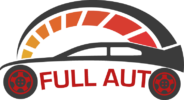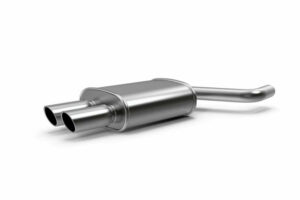Advanced Safety Protocols for Bucket Truck Operators
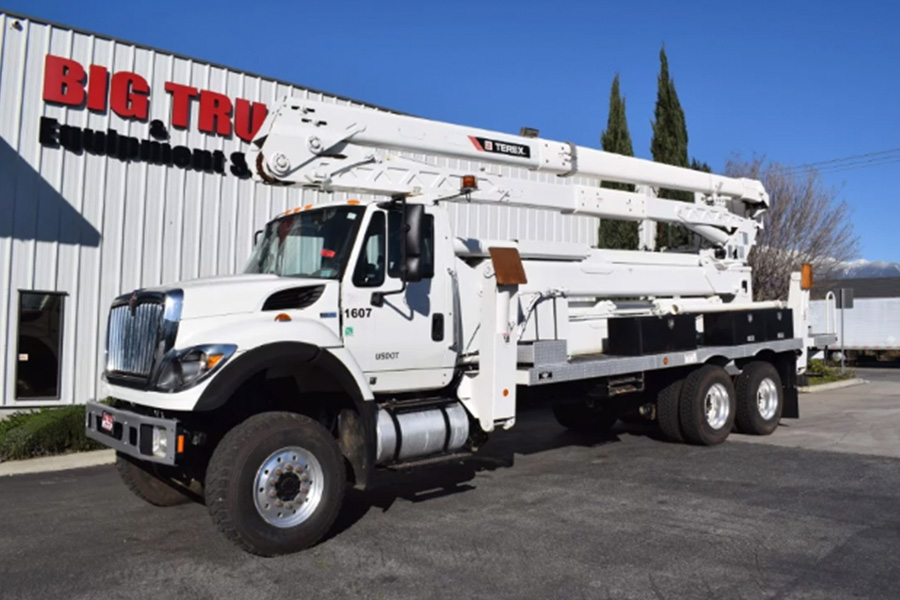
Bucket trucks are indispensable in industries such as utility maintenance, telecommunications, tree trimming, and signage installation. However, due to their height and complexity, operating these machines carries inherent risks. Whether you’re using cheap bucket trucks for small-scale jobs or high-end models like Altec bucket trucks for commercial operations, implementing advanced safety protocols is crucial to prevent accidents and ensure efficient workflow.
Understanding the Unique Hazards of Bucket Truck Operations
Before discussing safety measures, it’s essential to understand the specific hazards associated with bucket trucks. These include:
- Electrical shock from overhead power lines.
- Falls from the elevated platform.
- Tip-overs due to uneven ground or improper load distribution.
- Mechanical failures from poorly maintained equipment.
- Weather-related incidents, including wind gusts or lightning.
Recognizing these risks enables operators to proactively apply the right safety practices, especially when working with used bucket trucks in GA, which may have wear-related vulnerabilities.
Pre-Operation Safety Checks
Thorough pre-operation checks are the foundation of safe bucket truck usage. Operators should inspect:
- Hydraulic systems for leaks or pressure issues.
- Boom and lift mechanisms for any visible wear or cracks.
- Tires and outriggers for stability and inflation.
- Electrical insulation on controls and boom arms.
Using a checklist, especially when working with used bucket trucks, ensures that no step is missed. Even cheap bucket trucks, when properly maintained and inspected, can perform safely and reliably.
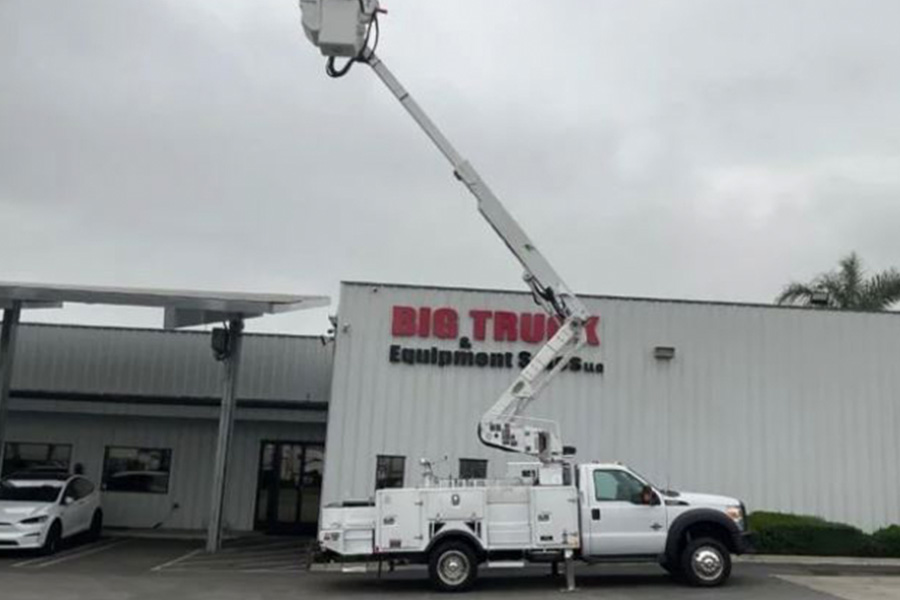
Operator Certification and Training
Bucket truck operators should complete certification programs that include both classroom instruction and hands-on training. Courses should cover:
- Equipment controls and emergency shut-off procedures.
- Proper harness use and fall arrest systems.
- Electrical hazard identification.
- Safe positioning and maneuvering practices.
Working with reputable training providers guarantees that operators can confidently manage both Altec bucket trucks and other models, regardless of the job’s complexity.
Personal Protective Equipment (PPE) Standards
Operators must always wear appropriate PPE, which includes:
- Hard hats to protect from falling objects.
- Safety harnesses with lanyards secured to designated anchor points.
- High-visibility clothing for better visibility near roads.
- Rubber gloves and sleeves for electrical protection.
These safety essentials are non-negotiable, especially when using cheap bucket trucks, which might not have the latest built-in safety features found in newer models.
Safe Setup and Ground Conditions
Stability begins with proper setup. Operators should:
- Park on level ground and avoid soft or sloped surfaces.
- Deploy outriggers fully, using pads or cribbing to distribute weight.
- Check for overhead obstructions like branches or wires.
- Mark off the work zone with cones or caution tape to prevent unauthorized access.
Many used bucket trucks can perform just as well as new models when correctly positioned and stabilized.
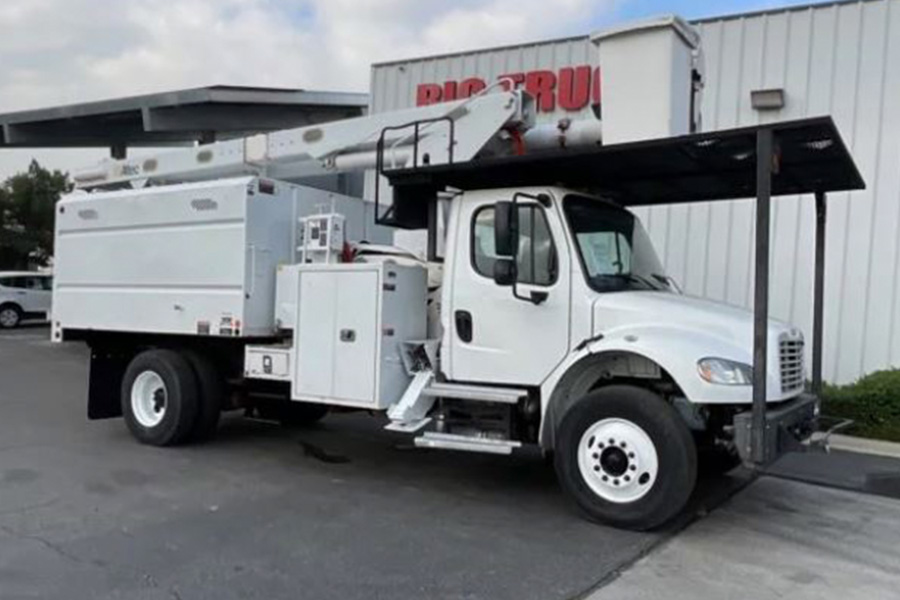
Working Around Electrical Lines
One of the most dangerous aspects of bucket truck operation is working near live electrical lines. The following protocols must be followed:
- Maintain a minimum approach distance as per OSHA regulations.
- De-energize lines when possible before beginning work.
- Use insulated tools and equipment.
- Assign a qualified spotter to monitor boom proximity to hazards.
Altec bucket trucks, known for their industry-standard safety features, often come with superior insulation and protection. However, regardless of the brand, operators must remain vigilant at all times.
Load Management and Boom Operation
Understanding the bucket truck’s load capacity is essential to prevent tip-overs or equipment strain. Operators should:
- Never exceed the platform weight limit, including tools and personnel.
- Avoid sudden movements or jerks when operating the boom.
- Distribute weight evenly within the bucket.
- Operate the boom smoothly and avoid extending it horizontally beyond stability limits.
When selecting cheap bucket trucks, ensure they are rated adequately for the types of loads and tasks required. Older used bucket trucks should be checked for any hydraulic or mechanical strain signs before lifting.
Emergency Response Preparedness
Advanced safety protocols also involve having an emergency plan in place. Teams should:
- Know how to manually lower the boom if power fails.
- Keep first-aid kits and emergency contact numbers on-site.
- Use two-way radios or other communication tools to maintain contact between the ground crew and bucket operator.
- Conduct regular drills to simulate emergency evacuations or rescue procedures.
Altec bucket trucks often include redundant control systems, but these protocols remain essential regardless of equipment type.
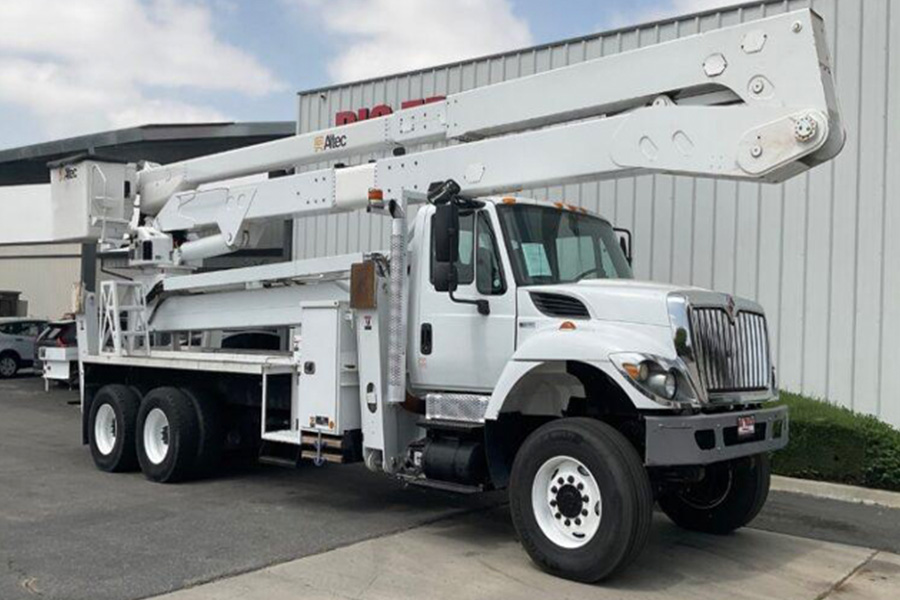
Weather Awareness and Limitations
Weather conditions greatly impact the safety of bucket truck operations. Operators should:
- Avoid operating in high winds (usually over 30 mph).
- Cease operations during lightning storms or heavy rain.
- Be cautious of slick or icy surfaces that can affect truck stability.
- Monitor weather updates regularly when on extended outdoor assignments.
This is especially critical for those relying on used bucket trucks in TX, Arizona, and beyond, where exposure to past weather events may have weakened some components.
Preventive Maintenance and Regular Inspections
A solid maintenance plan is key to long-term safety. All bucket trucks, whether cheap, used, or brand-new, undergo routine checks for:
- Hydraulic fluid levels and pressure consistency.
- Boom and pivot joints for wear or play.
- Electrical components for signs of corrosion or damage.
- Brakes, lights, and engine performance.
Operators should keep a maintenance log to track repairs and inspections. With older or used bucket trucks, it’s wise to schedule inspections more frequently to address wear and tear before it leads to failure.
Big Truck & Equipment Sales ensures that safety and performance go hand in hand. Whether you’re looking for cheap bucket trucks for sale for budget-friendly projects, dependable used bucket trucks for sale in AZ for daily operations, or industry-leading Altec bucket trucks in Washington, they’ve got a wide range of inspected, ready-to-work options. Their experienced team is here to help you find the right truck that fits your needs and budget, without compromising on reliability. Contact them today and let them help you power through your toughest tasks with confidence and peace of mind.
